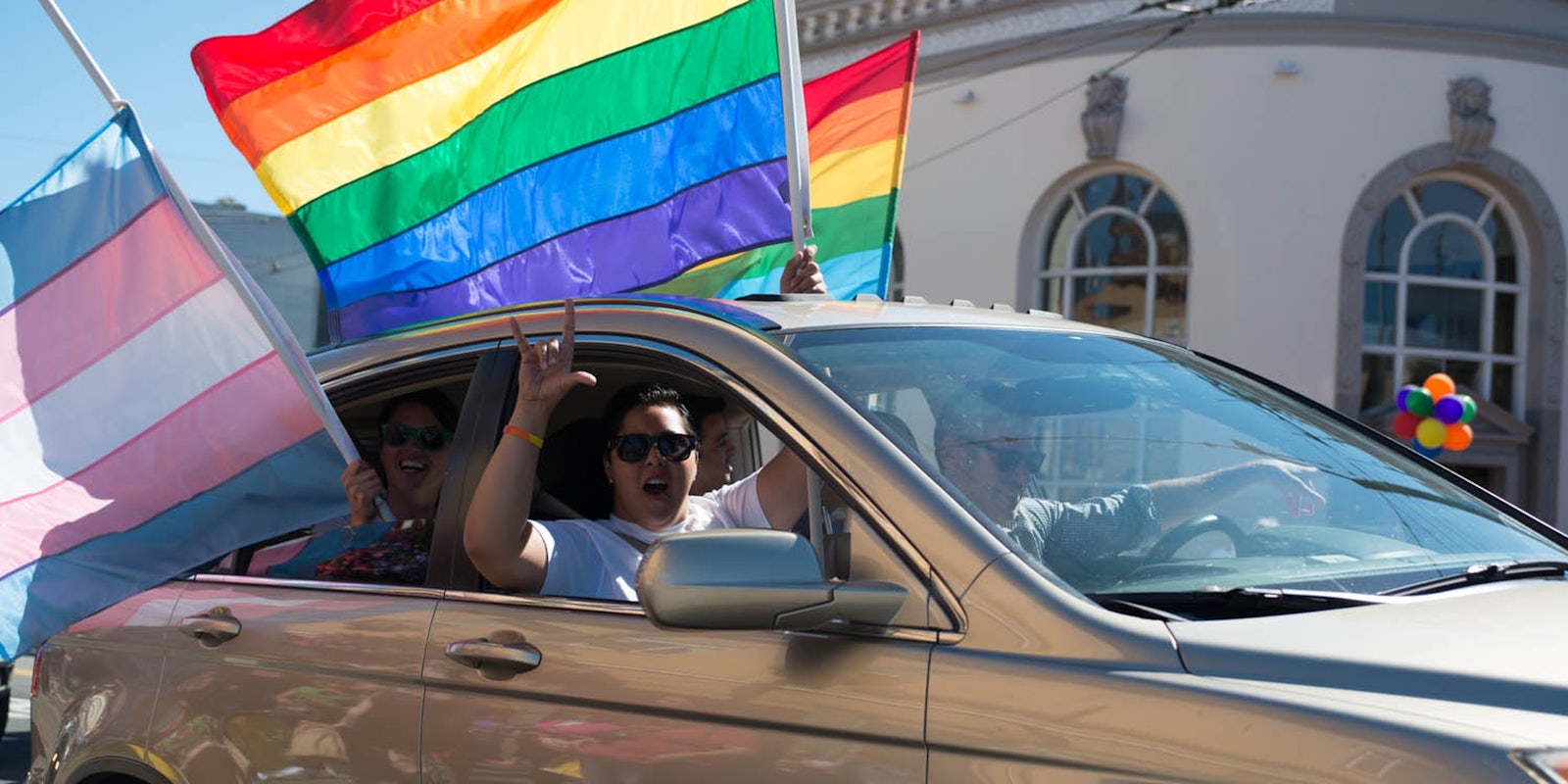If the U.S. Supreme Court legalizes same-sex marriage this month, that’s fine by most Americans, according to a new poll.
This year’s Quinnipiac survey of national voting trends, considered one of the most accurate polls in the U.S., has revealed that a majority of American voters would support a Supreme Court vote to recognize the constitutional right of same-sex couples to marry, even if it means that same-sex marriage would become legal across the nation.
The 2015 Quinnipiac poll results showed that 70 percent of Democrats, 61 percent of Independents, 34 percent of Republicans, and a majority 56 percent across the board support a vote in favor of legalizing marriage equality. Opposition to a constitutional right to marry came in at 38 percent.
The court heard oral arguments on April 28 in the historic case Obergefell v. Hodges, which argues that the right of same-sex couples to marry is protected under the Fourteenth Amendment. The court is expected to present a decision this month, with many predicting a vote in favor of same-sex marriage.
In some cities and towns, local officials are already starting to prepare for a potential “yes” vote at the Supreme Court, which would mean a rush of couples to wed.
As the Supreme Court ponders the fate of same-sex marriage, local officials are considering parking, waiting times & where to hold weddings.
— BattleCreek Enquirer (@bcenquirer) June 1, 2015
While judges in states like Alabama delayed their own decisions on state-level marriage-equality decisions pending the Supreme Court ruling, conservative politicians are pledging to fight a vote in favor of marriage equality. Presidential candidate Rick Santorum told NBC’s Meet The Press on Sunday that he planned to dispute the decision the same way he “continue(s) to fight” the 30-year-old abortion legalization verdict Roe v. Wade. Outside the presidential prospects, elected officials in states like Texas also lined up plans to oppose a vote for the constitutional right to marriage equality.
Meet The State Rep. Vowing To Defy Supreme Court Over Same-Sex Marriage In Texas http://t.co/0irIYs2WhV pic.twitter.com/FUXFv8D9Rz
— Michelangelo Signorile (@MSignorile) May 21, 2015
While the Quinnipiac poll’s most timely results related to marriage equality, other results showed public shifts away from supporting the death penalty and revealed disillusionment in the U.S. government’s battle against the Islamic State, commonly known as ISIS. While voters leaned away from capital punishment in favor of life without parole for convicted murderers, respondents felt dramatically in favor of the death penalty in cases of murder caused by acts of domestic terrorism, such as the bombing of the Boston Marathon.
Approval ratings for President Obama and both congressional parties were low, and the poll found most people wishing the government would focus less on foreign policy and fights against foreign threats, such as ISIS, and more on problems at home, like the economy. Congressional Republicans fared the worst in the poll, with a whopping 73 percent of those polled, including Republicans, disapproving of their activities.
While feelings about the success of political parties were essentially consistent with previous years, the nation’s attitude towards same-sex marriage has been shifting radically over the same period. According to the Pew Research Center, 54 percent of Americans supported marriage equality as of February 2014—but that number had risen between 2-4 percentage points per year, and it rose from just 37 percent in 2009. In addition, a vast majority of millennials, 68 percent, favored same-sex marriage rights.
Marriage equality supporters are watching anxiously as the Supreme Court readies its decision. The swing vote is said to lie with Justice Anthony Kennedy, who SCOTUS blog analyst Lyle Denniston called “hesitant but leaning” towards supporting same-sex marriage. The vote is set to be announced in June.
Photo via Kevin Prichard Photography/Flickr (CC BY SA 2.0)


